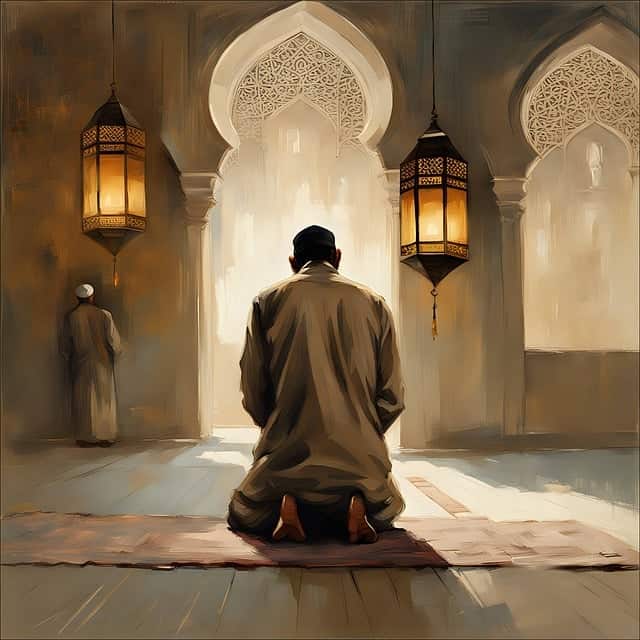Why should you follow up one good action with another one?

Start another act of worship as soon as you have completed one
And to complete the number of days and to glorify God for what He has guided you and may you be guided by Him. So that you might be grateful. (2:185)
Allah Almighty commanded His servants to thank Him for His favours for the blessing of fasting Ramadan by invoking Him through His remembrance and other forms of gratitude.
The Prophet (peace be upon him) said the one who has fasted and then does an additional six fasts in Shawwal it is as if he has fasted for a year.
وَعَنْ أَبِي أَيُّوبَ اَلْأَنْصَارِيِّ - رضى الله عنه - أَنَّ رَسُولَ اَللَّهِ - صلى الله عليه وسلم -قَالَ:”مَنْ صَامَ رَمَضَانَ, ثُمَّ أَتْبَعَهُ سِتًّا مِنْ شَوَّالٍ كَانَ كَصِيَامِ اَلدَّهْرِ”. رَوَاهُ مُسْلِمٌ.
Abu Aiyub Al-Ansari (may Allah be pleased with him) narrated that the Messenger of Allah (ﷺ) said:
“Whoever fasts during the month of Ramadan and then follows it with six days of Shawwal will be (rewarded) as if he had fasted the entire year.” [Muslim]
This verse and hadith show that Allah is confirming the importance of completion in our worship (fasting for the month of Ramadan) and beginning another one – the 6 days of Shawwal. Scholars commented that Allah, out of His mercy, made certain prayers obligatory and certain complementary, as they make up for any deficits or mistakes in our worship. For instance, the sunnah rakahs in Dhuhr or Asr make up for shortcomings in our fard.
Voluntary acts of worship make up for deficiencies in our obligatory acts of worship
On the Day of Judgment, Allah will ask us about our salah, and as none of us has completed these with perfection, Allah will ask angels if there are any voluntary prayers that will make up the shortfall and invalid salahs.
Abu Hurayrah reported that the Messenger of Allah (peace be upon him) said,
عَنْ أَبِي هُرَيْرَةَ قَالَ قَالَ رَسُولُ اللَّهِ صَلَّى اللَّهُ عَلَيْهِ وَسَلَّمَ إِنَّ أَوَّلَ مَا يُحَاسَبُ بِهِ الْعَبْدُ يَوْمَ الْقِيَامَةِ مِنْ عَمَلِهِ صَلَاتُهُ فَإِنْ صَلُحَتْ فَقَدْ أَفْلَحَ وَأَنْجَحَ وَإِنْ فَسَدَتْ فَقَدْ خَابَ وَخَسِرَ فَإِنْ انْتَقَصَ مِنْ فَرِيضَتِهِ شَيْءٌ قَالَ الرَّبُّ عَزَّ وَجَلَّ انْظُرُوا هَلْ لِعَبْدِي مِنْ تَطَوُّعٍ فَيُكَمَّلَ بِهَا مَا انْتَقَصَ مِنْ الْفَرِيضَةِ ثُمَّ يَكُونُ سَائِرُ عَمَلِهِ عَلَى ذَلِكَ
“The first action for which a servant of Allah will be held accountable on the Day of Resurrection will be his prayers. If they are in order, he will have prospered and succeeded. If they are lacking, he will have failed and lost. If there is something defective in his obligatory prayers, then the Almighty Lord will say: See if My servant has any voluntary prayers that can complete what is insufficient in his obligatory prayers. The rest of his deeds will be judged the same way.” [Tirmidhi]
Similarly Shawwal makes up for the imperfections in our fasts during Ramadan. The Prophet (peace be upon him) used to fast in Shawwal, as he did not fast only in Ramadan, but during the rest of the year as well. Ibn Rajab in his Lata’if al-Ma’arif said:
Out of His mercy, Allah ordained for His servants alongside every obligatory act a voluntary act of similar nature. This serves to compensate for any shortcomings or deficiencies that may have occurred in the obligatory act. One such example is the recommendation to fast six days of Shawwal. It is a Sunnah emphasized by the Prophet Muhammad, peace be upon him, who elucidated its virtues. These six days, in relation to Ramadan, are akin to the emphasized Sunnah prayers in relation to the obligatory prayers. Whoever observes them every year, it is as if they have fasted perpetually.
Thank Allah for the ability to worship Him
Wuhayb ibn al-Ward, a tabi’ee who passed away in 153AH was asked about the reward of certain deeds like circumambulation (Tawaf) and similar acts, he replid:
“Do not ask about its reward, but ask: What gratitude is incumbent upon the one who is granted the ability to perform this act, for the facilitation and assistance in it?”
For those who fasted, we should be grateful that Allah gave us the tawfiq and ability to fast. Not everyone was able to fast, and some even passed away. It is a great gift for those who fasted, that they were able to do it and reap the tremendous blessings and reward that it brings with it. Do not be a Ramadani person, the one who worships Allah during Ramadan and is flaky the rest of the year.
That Ramadan fasting entails forgiveness of the previous sins, as previously mentioned, and that those who fast for Ramadan pay their wages on the day of al-Fitr, which is the day of rewards. So, resuming fasting after al-Fitr is a thank you for this blessing. There is no blessing greater than the forgiveness of sins. Do you do this while God has forgiven you your previous and future sins? He says, “Should I not be a grateful slave?” [Bukhari]
Some of the predecessors, when they were granted the ability to pray one night, would fast during the day as a way of thanking for the opportunity to pray.
We ask Allah to make us of those who are thankful to him and our steadfast in our good deeds. Ameen
Related posts
What is the significance of the 6 Shawwal fasts?
Can I make a dual intention to fast in Shawwal?
- The truth is more powerful than lies
- Does a bride’s wali have to be Muslim?
- Is is permissible to lead a salah split over different rooms?
- Global IT outage. When systems go down…
- The concept of worship. What are ibadah and ihsan – and how do they lead to self development?
Recommended Posts

The truth is more powerful than lies
July 26, 2024

Global IT outage. When systems go down…
July 19, 2024

